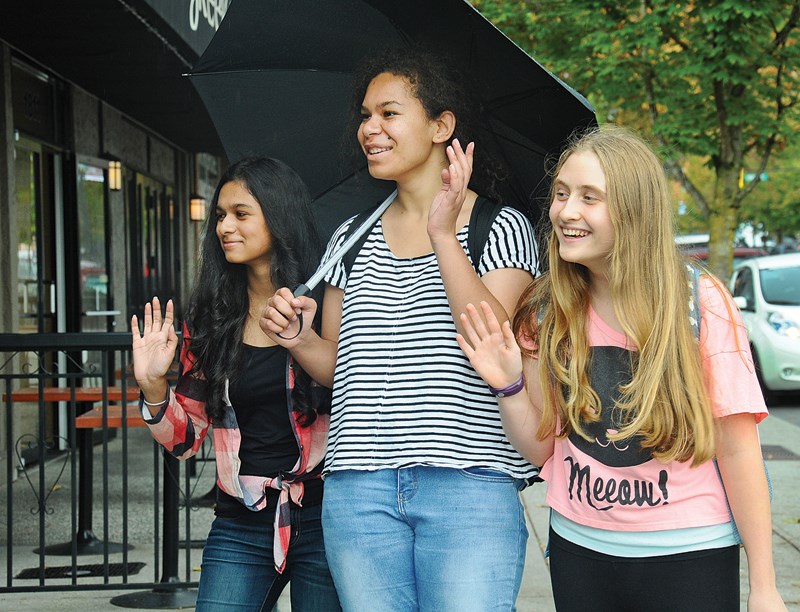Smile and the world smiles with you.
Recently a high school leadership class from Carson Graham put that to the test during a social experiment, conducted to see how strangers would react to friendly greetings.
The result: perhaps not surprisingly, it’s true.
About 100 students in grades 9 to 12 recently took part in what teacher Rob Olson described as the Contagion Project.
Their mission: to walk down Lonsdale saying hello to strangers and see if those people began reacting in kind by the time the final group of students sauntered by.
“We wanted see if their positivity is contagious. What we found is that it is,” said Olson.
When the students at the front of the group begin to greet strangers on the street “They might think ‘This is kind of weird,’” said Olson. But by the time the final group of students pass by, “The majority of people are smiling back or saying ‘good afternoon.’ People start being friendlier.”
The students also repeat the experiment at their school – holding the door for fellow students and saying hello. During last year’s experiment, “We started seeing kids who weren’t even in our class holding the door open for other kids or greeting them,” said Olson.
While not completely scientific, the experiment teaches a valuable lesson, said Olson – that someone’s state of mind or attitude can be contagious. “We’re trying to teach the kids as leader they have to be aware of that. It doesn’t mean they always have to be positive. They have to be careful with their words and emotions.”
Another important lesson of the experiment – that face time still counts.
“In this day of social media, there’s little face to face interaction,” said Olson. Students – and even adults – tend to be far more comfortable texting each other than they do walking up and talking to someone.
“It’s teaching kids to break out of their comfort zone socially,” said Olson. “Being present. That’s a really important skill. People count. That’s a huge message of our program.”
The community initiatives program, a course focused on local leadership, was started three years ago, and is taught by Olson and fellow teachers Shannon Van Baalen and Meghan Parker. A similar global leadership course that focuses on developing countries is also popular.
As part of the program focused on service, classes have prepared lunches for the homeless and handed out backpacks on the Downtown Eastside. Olson said he’s heard from past students who’ve gone on to take up further leadership roles in university.
“They’re doing things without being prodded by an adult. They’re doing it because it’s the right thing to do.”



